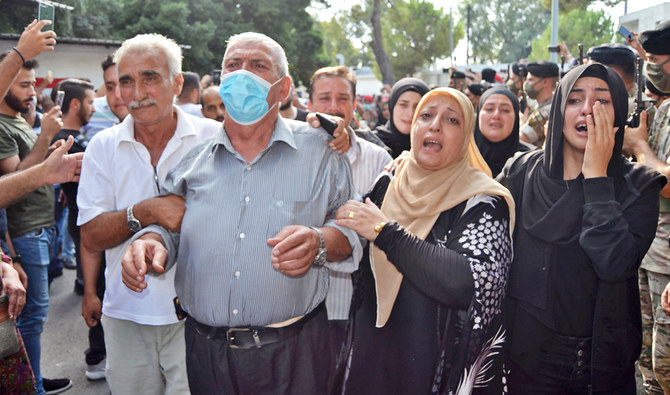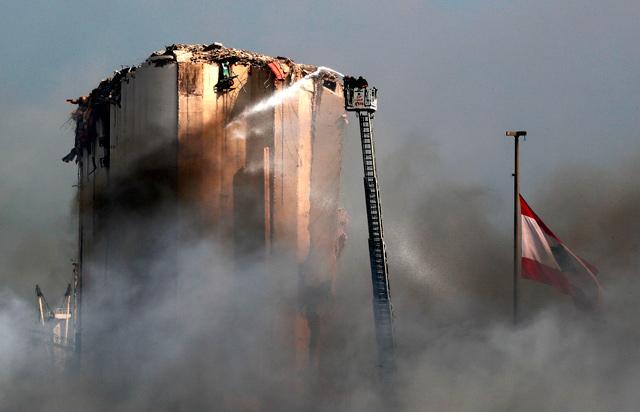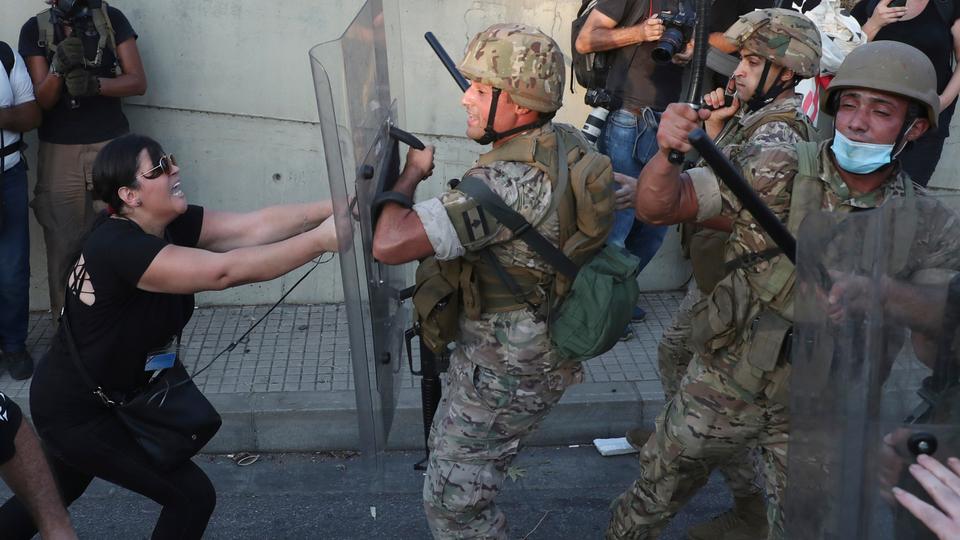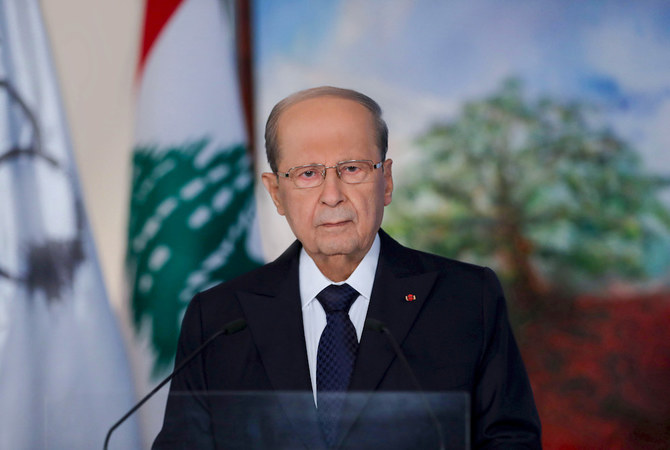by newsmax.com — President Donald Trump, who on Tuesday presided over the signing of normalization agreements between Israel and two Gulf Arab states, says several other nations are close to following the example of Bahrain and the United Arab Emirates. He also expressed confidence that Saudi Arabia will, when the time is right, join the process of fully normalizing relations with the Israelis, Reuters reported. Trump told reporters at the White House that the Kingdom is among several countries he believes are on the verge of opening diplomatic ties with Tel Aviv, according to a Turkish news agency reporting on the ceremonial signing, Anadolu Agency. Similar remarks about the Saudis following “at the right time” were reported by The Times of Israel. I spoke with the King of Saudi Arabia. We had a great conversation, and I think positive things will happen there, too. He’s a great gentleman. And the Crown Prince — we spoke with the Crown Prince,” Trump said, in remarks transcribed by the White House. “So we’ve made tremendous strides. And this is peace in the Middle East without blood all over the sand. I say it: Right now, it’s been blood all over the sand for — for decades and decades and decades. That’s all they do, is they fight and kill people, and nobody gets anything. And this is — this is strong peace, really strong peace, far — and it’s a different way.”

Our Prayers with the families of the Lebanese Soldiers Martyrs –
by arabnews.com — NAJIA HOUSSARI — BEIRUT: The Lebanese army on Monday killed what it described as the “ringleader of a terrorist cell” during a raid on a house in a town near Tripoli which also left four soldiers dead. Khaled Al-Talawi died after a force from the Military Intelligence Directorate closed in on an apartment where he had been hiding in Beddawi, northern Lebanon. Sgt. Louay Melhem, and soldiers Charbel Jebili, Anthony Takla, and Nihad Mustafa were killed when the militant threw a hand grenade and fired at their patrol before fleeing the scene with three other people. Al-Talawi was later killed in the Zgharta district after he shot at soldiers. Units stopped another fugitive and chased two others. Al-Talawi had been on the run from authorities after his car was used by armed men during the killing of three young guards in the town of Kaftoun on Aug. 21.
The militants were part of a terrorist cell, led by Al-Talawi, linked to Daesh. Since the attack, security services have carried out a series of raids, including one on the Beddawi Palestinian refugee camp, and Syrian refugee camps in the north. Lebanese Army Command revealed that the cell’s members “had received military training, collected weapons and ammunition, which were seized, and carried out several thefts to finance their activities.” Commander of the Lebanese Armed Forces, Joseph Aoun, briefed President Michel Aoun on the military operation in a phone call. Meanwhile, French President Emmanuel Macron’s deadline for Lebanese parties to form a new government of specialists and nonpolitical ministers has expired with as yet, no solution.

By AFP — BEIRUT — The European Union’s commissioner for crisis management on Saturday called for the urgent formation of a “credible” government in Lebanon before a second phase of financial support for the crisis-hit country can be released. Janez Lenarcic said the EU had mobilised 64 million euros ($79 million) for the emergency response to a devastating port blast that killed more than 190 people and wounded thousands in Beirut on August 4. The next round of funding would be for reconstruction, he said, but warned it would have to go hand in hand with reforms because the international community was not willing to support practices “that led to financial collapse and economic crisis”. The tragedy occurred when hundreds of tonnes of ammonium nitrate fertiliser that had been left unattended in a port warehouse exploded. It came as the Lebanese people were already reeling from the country’s worst economic crisis in decades and rekindled smouldering rage over official neglect and a political class accused of corruption.
The government resigned in the wake of the disaster, but Lebanon has rejected an international investigation, saying it would carry out its own probe aided by foreign experts. “We need a credible government that enjoys the confidence of the Lebanese people and is determined to take the country in the right direction,” Lenarcic told AFP after arriving in Lebanon on board a humanitarian aid flight. “Lebanon’s political class has to provide what people demand and this is also what the international community expects. I’m talking about governance, not only economic reforms. There has to be a change in the way this place is governed,” he said.

By NAJIA HOUSSARI — arabnews — BEIRUT: Reports about the spread of the coronavirus disease (COVID-19) in Roumieh Prison, the largest in Lebanon, have caused panic among the families of inmates who fear disaster if quick measures are not taken. Several guards and inmates are reported to have contracted the virus. Lebanon’s prisons already suffer from severe overcrowding, running at 160 percent of capacity at the end of 2019. Roumieh, located east of Beirut, houses more than 5,500 prisoners and has a separate juvenile section. The prison was opened in 1970 with a capacity of about 1,500 prisoners, but the number has grown over the years, making social distancing impossible. The possibility of granting a general amnesty to all inmates is currently under discussion.
Lawyer Ghida Franjieh said: “The judiciary ordered the release of many detainees since the announcement of the general mobilization to avoid crowding in detention facilities.” She added that parliamentary intervention would be required to ensure the release of those convicted of minor crimes. “There are many questions that need answers: Were the infections discovered in the early stages?” she added. “Were the infected people isolated immediately?” “The increase of overcrowding could lead to a health disaster in Roumieh Prison that may cross prison boundaries if the internal security forces and the judiciary do not take all necessary measures to protect infected prisoners and those in contact with them, especially since many prisoners suffer from weak immunity due to poor living conditions and health.”

By AFP — Hundreds of Lebanese marched Saturday on the presidential palace to denounce a lack of progress in a probe by authorities into a monster blast that ravaged swathes of the capital 40 days ago. Some marchers carried black versions of the Lebanese flag in a sign of mourning for the more than 190 people who were killed in the August 4 explosion at the Beirut port, and others demanded the president resign. Twenty-five suspects are in custody over the tragedy that occurred when hundreds of tonnes of ammonium nitrate fertiliser that had been left unattended in a port warehouse exploded.
The blast, which wounded thousands and destroyed homes and businesses across large parts of Beirut, was one of the biggest non-nuclear explosions ever. The government resigned in the wake of the disaster, but Lebanon has rejected an international investigation, saying it would carry out its own probe aided by foreign experts. Saturday’s march set off from the justice palace in Beirut to the hillside presidential palace, where there were also hundreds of supporters of President Michel Aoun and heavy army deployment. Troops fired warning shots into the air as brawls between rival demonstrators broke out, AFP correspondents said. “It is not possible that no one has been put on trial after an explosion like the one that happened on August 4,” anti-government protester Layal Tohme said. “The country is collapsing,” she added. Darine Hourani, a supporter of Aoun, said the president “cannot be held to account each time something wrong takes place” in the country. “He is the president and we must respect him,” Hourani added. But Carla Moukahal, a critic of Aoun, said the president must step down. “I came here to bring down this corrupt political system. We want to oust Michel Aoun. Enough is enough,” said the 19-year-old.
By Bassem Mroue, Associated Press — BEIRUT (AP) — During his visit this month, French President Emmanuel Macron gave Lebanon’s politicians a road map for policy changes and reform, set deadlines for them to take action and told them he’d be back in December to check on progress. It was a hands-on approach that angered some in Lebanon and was welcomed by others. And it revived a bitter question in the tiny Mediterranean country: Can Lebanese rule themselves? Lebanon’s ruling class, in power since the end of the civil war in 1990, has run the tiny country and its population into the ground. Heading a sectarian system that encourages corruption over governing, the elite have enriched themselves while investing little on infrastructure, failing to build a productive economy and pushing it to the verge of bankruptcy. Anger over corruption and mismanagement has come to a peak after the giant Aug. 4 explosion at Beirut’s port, caused by the detonation of nearly 3,000 tons of ammonium nitrate that politicians allowed to sit there for years. Nearly 200 people were killed and tens of thousands of homes were damaged. Another large fire erupted at the port on Thursday, only further traumatizing and frustrating Beirutis.
Poet and journalist Akl Awit wrote in An-Nahar newspaper that he strongly opposes outside interference, but the political elite brought it on themselves. “This is a class that does not care about law, constitution, judiciary, morals, conscience, earthquakes or even about bankrupting people,” he wrote. “This class only wants to stay in power.” Some worry that even outside pressure cannot force reform on politicians, for whom reform means an end to power and perhaps eventual accountability. “They are known to give empty promises whether to their people or the international community,” said Elias Hankash, a legislator from the right-wing Kataeb party who resigned from parliament following the port explosion. “Regrettably maybe President Macron does not know whom he is dealing with.”
BEIRUT (Reuters) – A senior Lebanese security official has held talks about the formation of Lebanon’s government with French intelligence chief Bernard Emie in Paris, a Lebanese official said on Thursday, as a deadline for announcing a cabinet looms early next week. France is leaning on Lebanon’s fractious politicians to establish a new government that […]

Opinions many not necessarily represents khazen.org views
BY EDWARD M. GABRIEL, OPINION CONTRIBUTOR — The Hill — The explosion that rocked Beirut, Lebanon, on Aug. 4, killing nearly 200 and injuring 6,500, left 300,000 people in need of food and 170,000 in need of shelter. This massive explosion has devastated a country that already was struggling economically. Lebanon was in financial default, with an 80 percent decrease in the value of its currency and food prices that had risen 55 percent. It has the highest per capita of refugees in the world, making up almost 20 percent of its inhabitants. And now its government has collapsed for the second time in a year, as the country continues to feel the pain of the COVID-19 pandemic. The people of Lebanon appear to have reached their limits, expressing hopelessness not before seen in a country that once was considered “the Switzerland of the Middle East.” Millions of citizens have taken to the streets in demonstrations for almost a year, protesting government corruption and incompetence. In the worst of times, such as these for Lebanon, America’s values can shine the most — and this may be such a moment for the United States.
One banner carried in the streets of Lebanon read: “You can’t clean a house with a dirty mop!” For the past year, in a strong carrot-and-stick approach, the United States, its European partners and several Gulf countries have signaled their interest to offer billions of dollars in aid to stabilize and rebuild Lebanon — but only if the country will establish a transparent government willing to make specific regulatory and budget reforms. The US on Tuesday sanctioned two former parliamentary ministers for providing support to Hezbollah, and French President Emmanuel Macron recently showed resolve by threatening sanctions on Lebanon’s corrupt individuals and anyone who harbors terrorist activities.
The United States can do more to help. It should step up the aid offered to organizations that advocate for the right of Lebanon’s citizens to freely assemble and express their demands for judicial and governmental reforms, and to American-style universities that it has supported in Lebanon. The U.S. has formed a solid, useful partnership with the Lebanese Armed Forces (LAF), which the U.S. military has called one of the best-trained fighting forces in the Arab world. This support, and the carrot-and-stick approach of the international community, is helpful in the longer term. Following the blast, the U.S. extended $18 million in humanitarian support, and it has promised $30 million in aid through the World Food Program. Yet, for a catastrophe of this size, this amount of assistance is paltry in comparison to the need. Both Congress and the U.S. administration have appeared reluctant to send humanitarian aid, out of concern that it could fall into the hands of Hezbollah or be utilized for corrupt or nefarious purposes.
By xinhuanet.com — Lebanese President Michel Aoun said Thursday that the massive fire that erupted at Beirut’s port earlier in the day may have been caused by an intentional act of sabotage, a technical error, ignorance or negligence, the National News Agency reported. “In all cases, we must investigate the reasons behind this fire and […]

by arabnews.com — BEIRUT: Lebanon’s President Michel Aoun has asked his interim foreign minister to contact the US embassy about the imposition of sanctions on two of the country’s former ministers, the presidency media office said on Wednesday. Aoun also requested contact be made with the Lebanese embassy in Washington “in order to understand the circumstances” behind the decision to place the politicians, allied with the Shiite Muslim group Hezbollah, on its sanctions list. The US Treasury on Tuesday announced it was imposing sanctions on former finance minister and top Amal official Ali Hassan Khalil and former public works and transportation minister Youssef Fenianos, a senior member of the Christian Marada Movement. The treasury department said they “provided material support to Hezbollah and engaged in corruption.” The move was Washington strongest warning against Hezbollah’s allies. Khalil is currently a member of the Lebanese Parliament and Hezbollah and its allies control majority seats in parliament.
The Shiite Amal group is headed by Lebanon’s longtime Parliament Speaker Nabih Berri and the Marada Movement is an organization allied with Hezbollah and Syrian President Bashar Assad’s government. The sanctions came as Lebanon grapples with an unprecedented economic and financial crisis and deals with the aftermath of a devastating explosion at Beirut’s port that killed more than 190, wounded 6,500 and caused damage worth billions of dollars. The sanctions also came as prime minister-designate Mustapha Adib works to form a new Cabinet to replace the one that resigned on Aug. 10, six days after nearly 3,000 tons of ammonium nitrate detonated in Beirut. The disaster fueled outrage against a ruling class that has run the country for decades amid widespread corruption and mismanagement. Some analysts in Lebanon saw the sanctions as a message to Hezbollah’s allies to review their links with the Iran-backed group, especially by targeting a Christian ally for the first time. “Fenianos and Ali Hassan Khalil are two central figures in the coalition that is led by Hezbollah,” said Ali Hamadeh, a political writer at An-Nahar newspaper who is often critical of the Iran-backed group.



